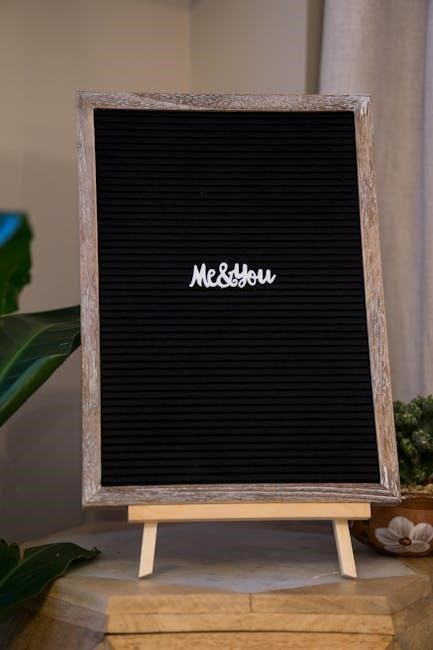Home is a universal concept, representing safety, belonging, and identity. It transcends physical structures, embodying memories, emotions, and cultural roots. The idea of home is deeply personal, shaped by experiences and connections, making it a cornerstone of human life and storytelling.
Exploring Synonyms for Home
The concept of home can be expressed through various synonyms, each carrying unique nuances. Common alternatives include house, residence, abode, dwelling, domicile, and habitation. These words evoke different imagery, from the physical structure of a house to the emotional warmth of an abode. In literature, such as Other Words for Home, these terms are used to explore themes of belonging and identity. Additionally, words like shelter and haven emphasize safety and refuge, while residence and domicile highlight legal or formal aspects of living spaces. The variety of synonyms reflects the complexity and depth of the idea of home, allowing for rich storytelling and personal interpretation in both everyday language and creative works.

Background of “Other Words for Home”
Other Words for Home, written by Jasmine Warga, is a poignant free verse novel published by Balzer Bray, an imprint of HarperCollins, exploring themes of identity and belonging.
The Author and Publication Details
Jasmine Warga is the author of Other Words for Home, a free verse novel published in 2019 by Balzer Bray, an imprint of HarperCollins Publishers. Warga’s work often explores themes of identity, family, and belonging, resonating deeply with young readers. Other Words for Home is her second novel, following her debut My Heart and Other Black Holes. The book tells the story of Jude, a 12-year-old Syrian girl navigating displacement and cultural identity. Warga’s lyrical prose and emotional depth have earned widespread acclaim. The novel is structured into six parts, reflecting Jude’s journey from Syria to America. With its universal themes, the book has become a significant contribution to children’s literature, offering a poignant perspective on refugees’ experiences and the concept of home.
Awards and Recognition
Other Words for Home has garnered significant acclaim, earning the Newbery Medal in 2025. This prestigious honor recognizes outstanding contributions to children’s literature, highlighting the book’s emotional depth and lyrical prose. Jasmine Warga’s work has also been praised for its authentic portrayal of a young refugee’s experience, resonating with readers globally. The novel’s ability to address complex themes with sensitivity has made it a standout in its genre. Additionally, it has been featured on various bestseller lists and recommended by educators for its relevance to diverse student experiences. The recognition underscores Warga’s skill in crafting a story that not only entertains but also educates and empathizes, making it a valuable addition to literary collections.
Structure and Content of the Book
The book is divided into six parts: Changing, Arriving, Staying, Hoping, Growing, and Living. Each section thoughtfully structures Jude’s journey of displacement, adaptation, and self-discovery, reflecting her emotional and developmental growth.
Parts of the Book
The book is structured into six distinct parts: Changing, Arriving, Staying, Hoping, Growing, and Living. Each part captures a phase in Jude’s journey, reflecting her emotional and psychological evolution. Changing introduces Jude’s life in Syria before displacement, while Arriving explores her initial experiences in America. Staying delves into her struggle to adapt, and Hoping reveals her longing for stability. Growing marks her gradual acceptance, and Living concludes with her embracing her new reality. These sections seamlessly weave together, creating a cohesive narrative that highlights Jude’s resilience and growth.
The division into parts allows readers to witness Jude’s transformation firsthand, making the story both deeply personal and universally relatable. Each section is a poignant reflection of her inner world, guiding readers through her challenges and triumphs.
Key Themes and Messages
The book explores themes of identity, displacement, and belonging, reflecting Jude’s journey as a Syrian refugee adapting to life in America. It delves into the emotional toll of leaving behind family, culture, and familiarity, while navigating a new environment. The story emphasizes resilience and hope, showing how Jude finds strength in her heritage and the support of loved ones. Another central theme is the concept of home, which extends beyond physical structures to encompass memories, traditions, and a sense of belonging. The narrative also highlights the challenges of cultural adaptation and the importance of preserving one’s roots. Through Jude’s experiences, the book conveys the universal message of finding one’s place in the world, even amidst uncertainty and change.
The themes are woven into the story through Jude’s introspective voice, making the narrative both deeply personal and universally relatable.

Literary Style and Genre
Other Words for Home is written in free verse, offering a lyrical and emotional narrative style. The genre blends contemporary realism with poetic expression, creating a deeply personal and impactful story.
Free Verse and Its Impact
Other Words for Home is crafted in free verse, a style that enhances the emotional depth of Jude’s journey. This fluid, poetic format mirrors the disjointed yet hopeful nature of her experiences as a refugee. By avoiding traditional rhyme or structure, the narrative feels raw and intimate, allowing readers to deeply connect with Jude’s emotions. The free verse style also reflects the fragmented nature of displacement, where memories, loss, and identity blur. It creates a sense of immediacy, making Jude’s voice feel personal and urgent. This approach not only highlights the versatility of free verse but also amplifies the story’s themes of resilience and belonging. The poetic language elevates the prose, transforming it into a powerful exploration of identity, culture, and home. Through this style, Warga masterfully conveys the complexity of Jude’s inner world.
Target Audience and Reception

Targeted at children aged 9-12 years (grades 3-7), “Other Words for Home” has been acclaimed for its emotional depth and received the Newbery Medal, resonating with its young audience through themes of identity and hope.

Reading Age and Reviews
The reading age for “Other Words for Home” is 9-12 years, making it accessible to middle-grade readers; The book has garnered positive reviews for its sensitive portrayal of a young Syrian refugee’s journey, with many praising its emotional depth and relatable protagonist. Critics highlight the free verse format as a unique and effective storytelling method, allowing readers to connect deeply with Jude’s experiences. The novel’s ability to address complex themes such as identity, displacement, and resilience has made it a favorite among both children and educators. Many reviewers note its suitability for classroom discussions, as it fosters empathy and understanding of diverse perspectives. Overall, the book is widely recommended for its thought-provoking narrative and its impact on young readers.